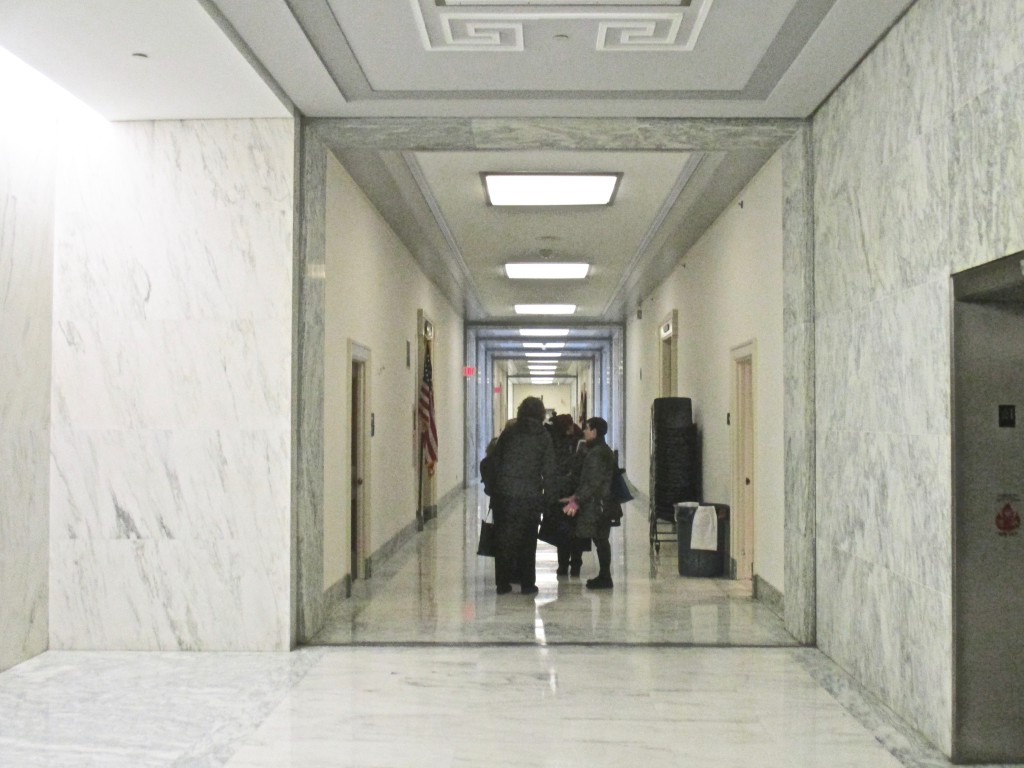
Members of the NCTE Policy and Advocacy Committee meet for platform briefings in the Longworth House Office Building, in late January 2016. (My photo)
Thursday, February 25, is NCTE’s Advocacy Day. The Executive Committee and other volunteers gather in Washington, DC, to meet members of Congress and Department of Education officials. We provide information about NCTE’s education policy platform and request specific actions.
Of course, the idea of a single “advocacy day” is a little foolish. The legislative calendar is long and fluid. And imagining the federal government as the only or even most important site of legislative action affecting education is foolish, too, especially these days.
As you know, in November Congress replaced the Elementary and Secondary Education Act known as “No Child Left Behind” with the new “Every Student Succeeds Act,” which President Obama signed into law. One of the effects of the new law was to curtail national programs for evaluating schools through processes and testing programs that many educators found extremely problematic. But the new law did not as much end assessments as shift responsibilities and procedures for them onto the states, along with many other requirements and concomitant resources. States gained flexibility.
Now, this is a good thing for states (and their students, families, and teachers) who devise appropriate assessments for literacy learning, who allocate school support funds in equitable ways, who support professional development that is expert teacher-led, and so on. But in other states, where political rather than professional guidelines determine how education dollars are spent, the results could well be no better than No Child Left Behind. In fact, they could be worse. I’m reminded, after all, that NCLB had bi-partisan support, with none other than Ted Kennedy as one of its senate sponsors. Many civil rights groups supported NCLB—and continued to support it all along—because they feared that, absent federal controls and oversight, education would continue to be inequitable in many states and locales.
The new Every Student Succeeds Act, therefore, has resulted in a more complex advocacy environment for education. Rather than mostly a single point of contact, the Federal Government and its funds, there are now fifty points of contact, each state determining within guidelines how to spend allocations to develop processes they’ve been given latitude to develop. Of course, in all sorts of important ways, states and districts have always been the most important site of educational policy, curricula, and professional support. ESSA only amplifies this.
And, of course, any legislation requires rules and regulations for its implementation. Even a fairly detailed law can’t specify everything. Various legislators and bureaucrats are continuing to write those regs (I’ve learned to speak Washingtonian, see?). Part of the goal of NCTE’s Advocacy Day is to influence that process. So, given what’s at stake, I’m not much feeling foolish at all.